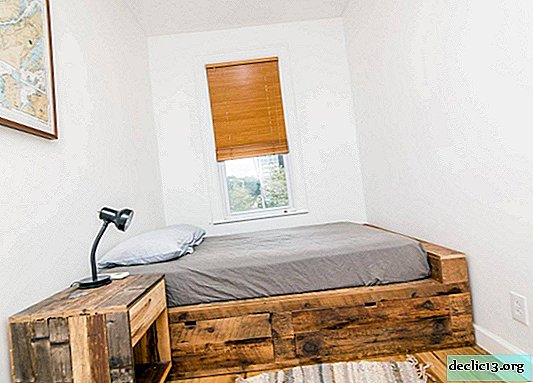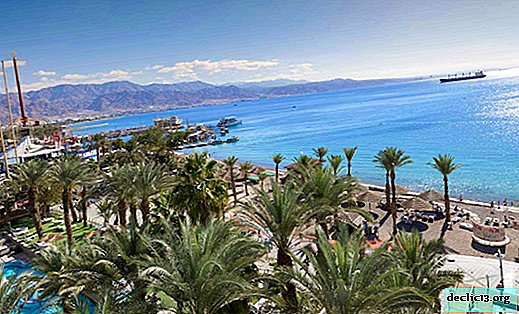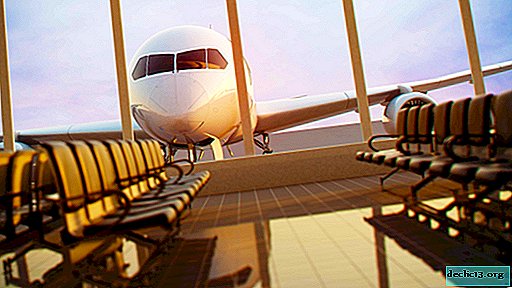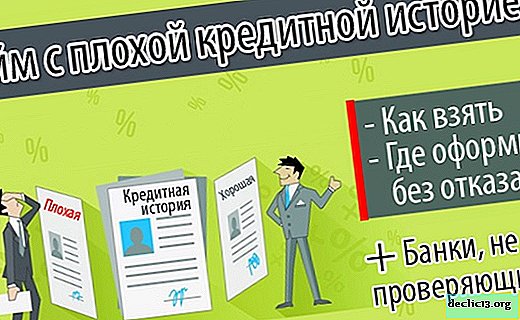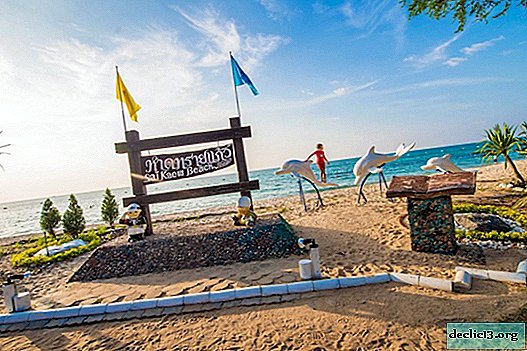TOP 10 most educated countries in the world
Since 1996, the Organization for Economic Co-operation and Development has been conducting international research to determine which country is the most educated in the world. Over the years, the rating has changed many times beyond recognition, but there have also been states that have firmly taken their place at the top of the planet’s education.

In early February 2018, the OECD formed the new top 10 most educated countries in the world. It was based on the results of studies to determine the number of students who successfully completed high schools among the population aged 25 to 64 years. Where do the most educated people live and what contributes to the growth of this indicator? We will tell in this article.
Scientifically proven! The level of education of the population often determines the quality of life of citizens.
10. Luxembourg

Luxembourg took the tenth place in our ranking - one of the smallest countries in the world with a total population of 580 thousand people. Despite the fact that there is only one university in the state, 42.86% of people aged 25-64 have completed higher education. This is due to the fact that many Luxembourgers go to study in neighboring countries - France, Germany or Belgium, since classes are held there in almost native languages for them.
Statistical fact! The Government of Luxembourg pays great attention to the development of the education system. In 2012, the country allocated € 21,000 for each student, despite the fact that the average indicator for OECD member states at that time was 9 thousand euros.
9. Norway

Allocating three times more funds for education than for defense, Norway has been confidently holding the ranking of the most educated countries in the world over the past few years. According to the OECD study for 2017, 43% of people surveyed have a higher education, with a total number of 5.3 million inhabitants.
Norway is one of the few countries in the world with a completely free education (even for foreigners). In addition, it is here that students pay much attention to self-study, which stands out for almost half of the curriculum. Students are not monitored for lectures, and verification tests are not carried out more often than once per semester. Perhaps it is thanks to such freedom that the education system in Norway is so effective, because it is always more pleasant (albeit more difficult) to control the learning process yourself than to go in pairs and perform tasks under the pressure of teachers.
8. Finland

The total population of the country is 5.5 million inhabitants, of which 43.6% of people aged 25-64 have completed higher education. Back in the 1980s, the Finnish education system was considered one of the most confusing and ineffective in the world, but everything changed after a series of reforms carried out at the beginning of the 2000s.
Today, education in Finland is based on a system of relaxed attention and self-control, so local students do not know what cramming or cheating is. They can independently draw up a training schedule for themselves with the subjects they like and the desired intensity, enroll in an unlimited number of universities (education is free), retake the difficult test several tens of times. As a result, students strive to get as much knowledge as possible, not points, and by the end of the program they become truly qualified specialists.
7. Australia

With an indicator of 43.74%, Australia ranks 7th in the ranking of the most educated countries in 2017. It is here that students from all over the world come to study in 7 of the 100 best universities in the world, they conduct research annually, the results of which are used by more than a billion people, here they graduated from universities 15 Nobel laureates of our time.
Especially popular is the Australian education due to the opportunity to get two specialties at the same time. Each student can choose a related profession and in just 5 years receive a double diploma (for example, economics and law, psychology and marketing), which opens up great prospects.
Interesting to know! In Australia, education is practical, so the country's unemployment rate does not even reach 5%.
6. USA

Although the United States has 8 of the top 10 universities in the world, in our ranking they occupy only 6 levels with an indicator of 45.67%. This is due to the high cost of education and the high demands placed on students. For example, at Yale University, only 1,300 freshmen out of 20,000 candidates are admitted annually, and for each teacher there are only 3 students.
5. UK

Almost 46% of the country's adult population has higher education, and most of them are representatives of technical sciences. It is here that 10% of world research is carried out, so students of English universities have access to unique databases and equipment. No less attention is paid to humanitarian specialties - they are chosen by about a third of students, and creative organizations bring the UK 140 million pounds a year.
Interesting fact! In the United Kingdom, the undergraduate program lasts only three years, which is the lowest in Europe.
4. South Korea
 Seoul National University
Seoul National UniversityThe fourth place in the ranking of the most educated countries is occupied by South Korea with a result of 46.86%. A feature of this state is the presence of a clear hierarchy of universities, so the more prestigious your university, the greater the chance of a successful career. The most respectable are Seoul National University and the Korea Leading Scientific and Technical Institute.
3. Israel

Almost half of the adult population of Israel has a complete higher education. There are only 9 universities in the country, tuition in them is paid and costs about $ 3000 per year. Israelis graduate quite late, compared to other countries - at 27 years old. This is due to the fact that both boys and girls with the age of majority are drafted into the army, and only then devote themselves to training.
2. Japan

The strictest requirements for applicants, paid tuition and only 24% of students who manage to enroll on the first try - despite all these difficulties, 50.5% of adult citizens have higher education in Japan.
In total, about 700 universities work in the country, only 10% of which are state-owned, and an average year of study costs from 7 to 9 thousand dollars. Japanese education has its own unique features:
- Student attendance is strictly controlled and scored.
- In most educational institutions, the school year begins in April.
- For foreigners to enter a Japanese university, a certificate of completion of 11 years of study is not enough. Due to the fact that local residents spend 12 years of their lives at school, another year will have to study at the university of their country or at special preparatory courses in Japan.
- In Japanese universities are accepted only from the age of 18.
- An applicant can choose only one educational institution in which he wants to enter.
1. Canada

The most educated country in the world in 2017 was Canada with an indicator of 56.27%. Here, universities provide training in English and French, and Canadian bachelor and master certificates are highly valued throughout the world. Higher education in the country is paid, but thanks to large investments in grant systems, talented students in unpopular specialties (chemistry, physics, biotechnology, psychology) have the opportunity to study for free.
Higher education here is very expensive - from 9 thousand dollars per semester, but despite this, students come here from different parts of the world. Canada is the most educated country in the world over the past 3 years, so the demand for Canadian students is increasing every year.


